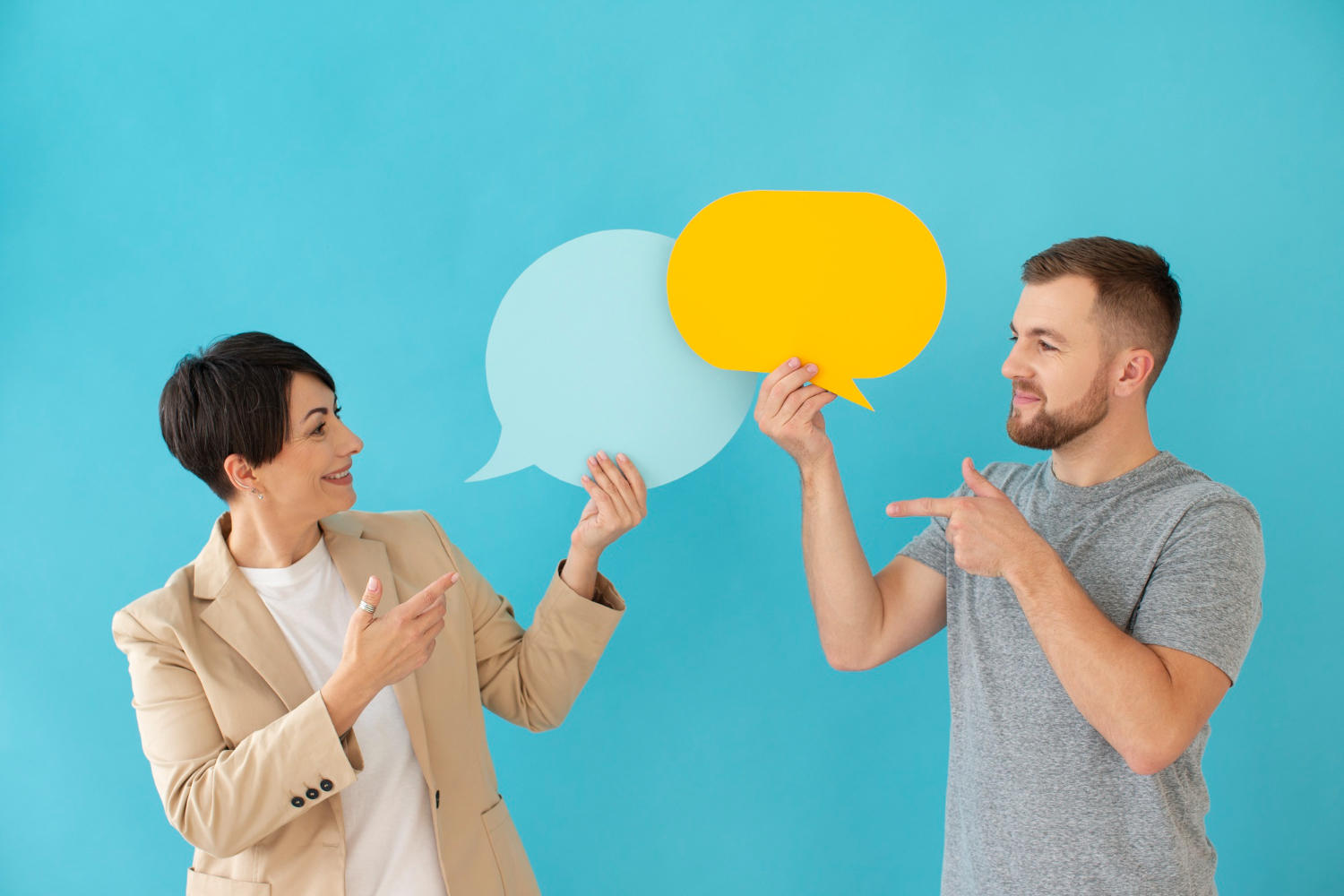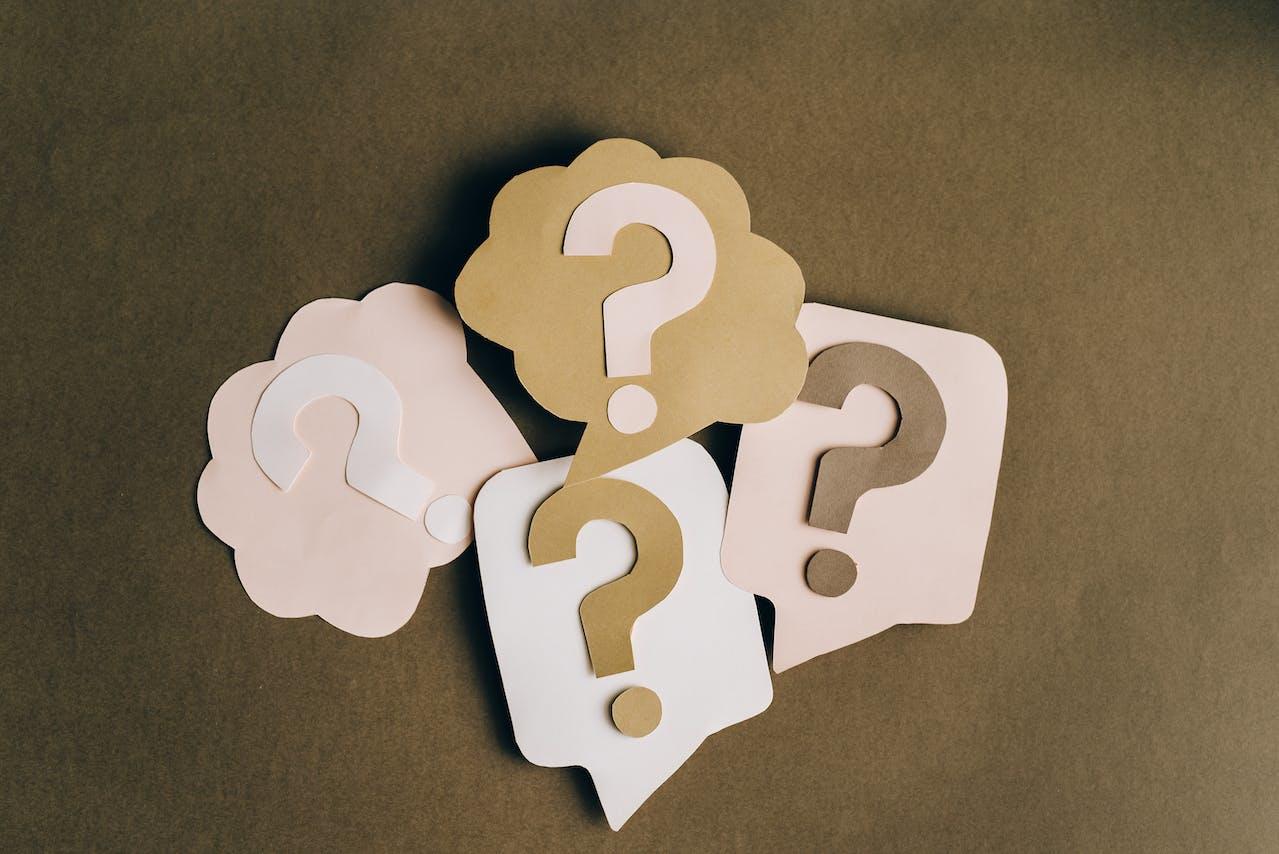Most language learners who are in typical esl classes for adults struggle with making the transition from understanding the written language to understanding the spoken language.
Traditionally, language learners will first be taught how to read and write in their target language because it’s essential for picking up vocabulary and grammar.
This is certainly an effective way to learn new words! But, it doesn’t prepare you for listening to people actually speak.
In esl classes nyc, you may be able to understand your classmates and teacher speak because you are all approaching the interaction as a learning and practice activity. In real life, you will be hard-pressed to find someone you can have a level-appropriate conversation with.
So how do you bridge the gap between where you are and where you want to be in terms of understanding spoken English?

What Is Listening Comprehension?
Firstly, what is listening comprehension, and how is it different from just listening or hearing?
It seems like a simple concept: you hear someone speak and you know what they said.
But, as we know, it’s hardly ever that easy!
This is why it can be so frustrating as language learners to get to the stage where they can understand other people speaking with ease. You’re used to being able to understand people in your own language so quickly and fluently; being unable to do the same with your target language is frustrating!
But it’s not just a “you problem.” Listening comprehension is a complex process that utilizes so much more of your brain than reading, writing, and speaking. Teaching your brain to understand another language as well as the one(s) you already know takes a lot of brain training.
The Science of Listening Comprehension
Our first language(s) were likely learned naturally as we were babies and children. At that age, your brain is a clean slate. It has room for every speck of information thrown at it, it doesn’t have pre-existing patterns to get stuck in, and it doesn’t have limiting beliefs or deep-seated insecurities that make it impossible to say a word aloud badly.
In short, babies are language-learning machines because that’s what the brain is ready to do at that age.
At an older age, we have to consciously engage the learning parts of the brain to make a language make sense and stick.
In order to comprehend something you’re listening to, you must do three things instantaneously and simultaneously:
- Convert sounds into words
- Understand those words
- Remember those words
When you can consciously go through this process, you can greatly improve listening skills with more ease.

1. Convert Sounds Into Words
We all do this when we hear people talking. When you understand what someone is saying, it means you have the patterns for those sounds so well-ingrained in your brain that you don’t have to struggle to connect the individual sounds together into words.
Before you understand which sounds together make which words, it’s like trying to put together a puzzle without a reference picture, and every sound you hear is a new piece being thrown at you. When you can’t place the pieces fast enough, you end up with loose puzzle pieces in piles all over the floor as they are still being thrown at you: you have no idea how to put these things together.
While building your comprehension skills, you start having better and better reference pictures for your puzzle pieces. You see a piece you recognize and you know exactly where it goes. You won’t get every piece placed, but you start to get enough of them to get a clearer picture of what is being said.
With fluency in listening, you don’t even need the reference picture anymore. You receive a piece and in the same instant know exactly where it goes. You are able to build the puzzle at the exact same speed as the person speaking to you.
2. Understand Those Words
The second part of listening comprehension is actually knowing what is being said. Even if you recognize a word, you also have to know the definition and context of use in an instant to really understand what is being said.
Factors like dialect, accent, slang, intonation and tone, cultural context, and individual speech patterns all change the intended message as well as the perceived message of a word or sentence.
You need to understand the word at face value, and full fluency comes when you can also listen in between the lines.
3. Remember Those Words
Especially if you’re in a dialogue and the person you’re speaking with says a long piece, remembering all of what was said can be difficult.
This happens to the best of us, even in our native tongues, if we aren’t paying enough attention, get stuck on an idea halfway through a sentence, or are having mental fatigue.
Remembering what was said, how it was said, and the various contexts that came with it is a lot to ask. Yet, somehow, we can typically do it in our native languages with relative ease! This allows us to
- Retain new information about a concept
- Remember conversations and relationships with the people we talk to
- Understand that same person better later on as we get a better understanding of how they communicate
- Relay the same information to others later on
So, as you can see, listening comprehension is a very nuanced, complex skill that takes a lot of exposure, mental energy, and time to build.
It’s Not Just Language!
Listening comprehension applies every time you’re having a conversation, in any language, about anything. Imagine having a conversation in your native language with a rocket scientist about orbital mechanics and 3D geometry when you yourself have no knowledge of the subject.
While you might be superb at step 1: converting sounds into words, you might be effectively unable to do steps 2 and 3 simply because you know nothing of the world of rocket science.
Keep this in mind throughout your life when you or someone you’re talking to is having a hard time understanding; they might just not have the skills needed to fully comprehend the situation. Have patience!

Reasons an Individual Might Have Listening Comprehension Problems
In addition to the language and brain-powered problems language learners face when listening to their target language, there are a few common non-linguistic problems that can impede your English listening skills.
Mental Blocks
Imposter syndrome, lack of faith in your ability to learn, and fear of failure are all mental blocks that can keep you from making progress.
If you think there is no way on earth you will ever learn the language, then you likely won’t be able to make much headway. Likewise, if you’re afraid of having a conversation and looking stupid because you are having trouble, you’ll be too scared to learn through experience.
Imposter syndrome is particularly insidious because even if and when you are making progress and are doing well, it will make you think you aren't improving or knowledgeable.
Listening Fatigue
Listening intently takes a toll on the brain, and after a while, you’ll simply be too tired to keep listening and thinking. At this point, you need to relax your mind and rest, since trying to do even more studying or work won’t stick and will likely just make you feel frustrated.
Hearing Problems
If you have problems like age or injury-related deafness, tinnitus cerumen impaction, hearing loss due to ototoxic medications, or Anotia, microtia, or a syndrome like Waardenburg, it can physically impact your ability to hear people clearly. Many people with speech impediments actually have them because of having chronic ear infections as children.
Neurodivergence
Unlike physical reasons for hearing loss, hearing problems that stem from the brain aren’t observable but are still just as valid. Auditory processing disorder can make it difficult to grasp speech in your own language and has nothing to do with your experience, knowledge, and/or fluency.


8 Strategies to Improve Your Listening Skills
Now, we learn how to improve listening comprehension.
Here are some strategies that teachers and professors often utilize to help their students thrive, and how you can adapt them to help yourself learn better independently.
1. Listen to a Speaker You’re Comfortable With
Find a YouTuber, podcaster, audiobook narrator, or practice partner whose voice you understand rather well.
Listen to them often so you can get a baseline for how the language sounds coming from someone else.
Use an app or website like Tandem to find a real-life conversation partner who speaks English at a fluent level so they can teach you how people actually speak in everyday life.
After you’re more comfortable, you can branch out to different speakers.
2. Listen to Subjects That Interest You
Most audio language-learning programs will start with a unit like going to a restaurant and ordering a meal or something along those lines. While that’s perfectly acceptable and helpful, if you’re sick of hearing about it or you simply don’t care about that activity, you won’t learn as much.
Instead, skip to something you like! Even if you’re listening to a podcast and they don’t start talking about your interest until episode 30, skip to it and see if it’s possible to learn from there.
YouTube, podcasts, audiobooks, and movies & TV also let you listen to specific topics that you actually enjoy.
Do you love cooking shows in your native language? Maybe you enjoy watching people play through your favorite video game. Maybe documentaries are your thing. No matter what you like, try watching all the same things, but in English!
3. Use a Variety of Inputs
This works great if you’re at the point where you want to listen to different speakers.
Try using a variety of media to maintain your interest, glean cultural information, and understand how different people communicate. Try listening to a wide swath of media, such as:
- Podcasts
- Audiobooks
- News Television
- Live-action TV shows (sitcoms, documentaries, true crime, reality TV, cooking shows, or any other subject you enjoy)
- Live-action movies
- Animated movies and TV
- YouTube (videos about language and videos that genuinely interest you)
- Social media
- Music
Unlock the power of effective communication by enrolling in our esl classes online, where you will master invaluable strategies to enhance your listening skills. Join us to develop a keen ear for English, improve comprehension, and gain the confidence to navigate diverse conversational landscapes. Enroll today and elevate your language journey through targeted techniques designed to sharpen your listening proficiency.

4. Learn the Rules of Pronunciation
Familiarize yourself with IPA (International Phonetic Alphabet) English. Understanding the differences in pronunciation that are notated with this alphabet can help you understand the difference between similar sounds, like ‘t’ and ‘th.’
5. Use Videos for Learning Body Language
A large part of communicating verbally is also visual. Use live-action TV, movies, and videos of native speakers speaking English to see their expressions and body movements.
Reading lips can also be an extremely helpful skill for understanding a speaker, especially if you have hearing problems or an auditory processing disorder.
6. Practice Active Listening
Instead of throwing on a podcast in the gym and expecting to absorb through exposure, actively listen to what you are hearing.
Having audio in the background is great for getting your ears used to the general sounds of a language, but you will not be able to learn listening comprehension that way. Spend at least 10-30 minutes a day actively listening to English.
This means consciously going through the steps of listening comprehension and acting as though you’re in a conversation with the person speaking. Digest as much as you can in the moment, since that’s what you’ll need to be doing in real life.
7. Read and Listen Simultaneously
Find resources where you can read a script or subtitles in English while listening to the speaker. This way, you’ll start to be better able to recognize different words as they are spoken.
Consider enrolling in esl classes houston to improve your language skills and boost your confidence in speaking, reading, and writing. With expert instruction and tailored learning, you'll achieve your language goals efficiently.
8. Take Notes While Listening
Write down words or phrases you aren’t familiar with so you can research them later without interrupting the flow of conversation. This will help you get better at being able to make it through conversations without faltering over words you don’t quite understand.

Exercises to Practice English Listening Comprehension
Ready for some specific exercises you can do to improve your listening comprehension skills?
Especially if you’re learning independently, it’s important to make sure you are practicing with purpose. This means:
- Understanding why you’re struggling to understand a specific audio piece
- Coming up with steps you can take to address this specific situation
- Keep using what works and refining or discarding the methods that don’t
- Listen to as much audio that you can actually understand as possible. Use it as a way to boost morale and compare it to audio you have trouble with so you’ll have a better idea of what you need to do to understand that troublesome audio.
With these exercises, you will better know how to improve listening skills in English.
Transcribe Audio
You will have to pause your audio a million times during this exercise, but it will help you make the connection between sounds and words.
Listen to a piece of audio you can already understand and write the words down. Don’t worry about formatting, and if the speaker says something like “gotta” instead of “got to,” write “got to.” It will help reinforce that “gotta” is another sound that means “got to.”
Repeat What You Hear
Repeat sentences that you listened to aloud. This way, you practice remembering what was said as well as making the connections between sounds and words. It also primes you for active listening.
Audio and Physical Books
Listen to the audio version of a book at the same time as reading the book to make connections between the written words and the spoken sounds.
Watch Linguistics Videos
Find a series on YouTube about the linguistics of English that you enjoy. One of my favorites is the series with dialect coach Erik Singer.
This helps you understand the technical aspects of sounds between different dialects and accents!
Strengthen Listening Comprehension with English Tutoring
Learning a language without someone to spend one-on-one time with you is difficult.
With a tutor, you can be sure that someone is listening to your grammar, pronunciation, and syntax while ensuring that your listening comprehension skills are nurtured.
With a service like Superprof, you can quickly and easily find English tutoring online or in person, depending on your wants and needs.
Simply search for “esl classes chicago” to start your search for the perfect private English tutor!
Summarize with AI:
























